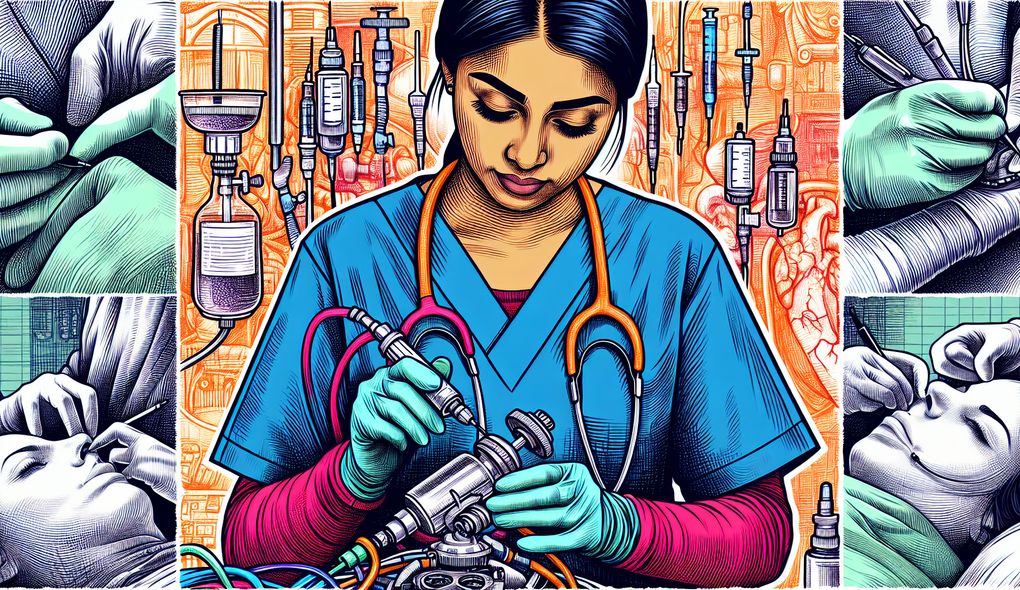Tell me about a time when you encountered a challenging patient during anesthesia administration. How did you handle the situation?
INTERMEDIATE LEVEL

Sample answer to the question:
I encountered a challenging patient during anesthesia administration when I was working in a busy operating room. The patient was extremely anxious about the procedure and had a lot of questions and concerns. To handle the situation, I took the time to sit down with the patient and explain the entire process in detail, addressing their specific concerns. I made sure to use clear and simple language to ensure the patient understood everything. I also provided reassurance and support throughout the process, emphasizing that their safety and comfort were my top priorities. By the end, the patient felt much more at ease and confident about the procedure.
Here is a more solid answer:
During my time working in a busy operating room, I encountered a challenging patient who was extremely anxious about the anesthesia administration. It was crucial for me to rely on my strong understanding of anesthesia techniques, equipment, and medications to handle this situation. I took the time to sit down with the patient and explain the entire process in detail, addressing their specific concerns and questions. I used clear and simple language to ensure the patient understood everything. Additionally, I utilized my excellent communication and interpersonal skills to provide reassurance and support throughout the process. I emphasized that their safety and comfort were my top priorities, which helped alleviate their anxiety and build trust. By the end, the patient felt much more at ease and confident about the procedure.
Why is this a more solid answer?
This is a solid answer because it provides more specific details about the techniques, equipment, medications, and the specific communication and interpersonal skills used. It demonstrates a strong understanding of anesthesia and the ability to work well under pressure in a fast-paced environment. However, it could still be improved by including examples of critical thinking and problem-solving abilities.
An example of a exceptional answer:
During a challenging anesthesia administration, I encountered a patient with a severe needle phobia. This presented a unique set of obstacles as the administration required multiple injections and monitoring devices. To handle the situation, I approached the patient with a high level of compassion and empathy, acknowledging their fear and explaining that it is a common and understandable response. I incorporated techniques such as distraction and deep breathing exercises to help the patient relax. I also worked closely with the anesthesiologist to develop a tailored plan, including the use of a smaller needle and numbing creams to minimize discomfort. Throughout the administration, I maintained open communication with the patient, constantly providing reassurance and encouragement. The successful outcome was evident as the patient's anxiety decreased, allowing for a smooth procedure.
Why is this an exceptional answer?
This is an exceptional answer because it goes beyond the basic and solid answers by providing specific details about encountering a patient with a severe needle phobia and explaining how the situation was handled with compassion, empathy, and the utilization of various techniques. It also highlights the collaboration with the anesthesiologist and the successful outcome achieved. The answer demonstrates a high level of compassion and empathy, as well as critical thinking and problem-solving abilities. However, it could be further improved by including examples of adjusting the anesthetic plan based on patient responses.
How to prepare for this question:
- Review your knowledge of anesthesia techniques, equipment, and medications to ensure a strong understanding.
- Reflect on past experiences in which you have encountered challenging patients and think about the strategies you used to handle the situations.
- Practice clear and simple communication to explain medical procedures to patients in a way that they can easily understand.
- Develop your empathy and compassion skills by seeking opportunities to understand and connect with patients on a deeper level.
What are interviewers evaluating with this question?
- Strong understanding of anesthesia techniques, equipment, and medications.
- Ability to work well under pressure in a fast-paced environment.
- Excellent communication and interpersonal skills.
- High level of compassion and empathy for patients.

